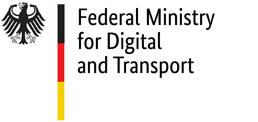Regionaldirektion Nord
Millerntorplatz 1
20359 Hamburg
Andreas Matthies
Phone: +49 40 30 388-51 21
Mobile: 0151 19 61 52 48
Mail: andreas.matthies@knappschaft.de
Benefits of nursing care insurance
- Scope of the statutory nursing care insurance
- Five degrees of care
- Benefits of the nursing care insurance
- Nursing care abroad
Scope of the statutory nursing care insurance
The statutory nursing care insurance has to ensure that its members receive the required nursing care. It assists where the independence of the person in need of care is restricted. Depending on the care degree and type of care, the nursing care insurance bodies cover different amounts.
The legal basis for the provision of statutory nursing care is volume eleven of the German Social Insurance Code (SGB XI). Responsibility rests with the nursing care funds which have been established by all statutory health insurance funds.
Five degrees of care
Statutory nursing care insurance focuses on persons in need of nursing care. Being in need of nursing care means having to rely, permanently or long-term, on support for everyday routines due to a physical, mental or psychological illness or handicap. The medical service of the health insurance (Medizinischer Dienst der Krankenversicherung, MDK) acts also on behalf of the nursing care funds and upon application assesses the degree of need for care. The assessment is performed by the medical service in the home of the applicant. Its evaluators focus on the following six areas ("modules") in their assessment:
- Module 1 "Mobility" (i.e. physical mobility and coordination)
- Module 2 "Mental and communicative abilities" (e.g. capacity for remembering, to make decisions, to execute complex actions, to recognize risks and hazards, etc.)
- Module 3 "Behaviour and psychological issues" (reaches from general restlessness over anxieties to aggressive behaviour and depression)
- Module 4 "Self-sufficiency" (e.g. physical hygiene, changing clothes, eating and drinking)
- Module 5 "Independency in dealing with health and therapeutical requirements and strains – as well as coping with them" (this includes medical self-sufficiency and managing medical appointments independently)
- Module 6 "Arrangement of everyday life and social contacts"
The visit of the evaluator will take about one hour, during which the extent of the need of care will be assessed taking into account the six areas of independent living capability. The rating of the individual modules regarding the need for care differs.
The evaluator will ask you to describe your limitations and problems in your every-day life. It is in your best interest not to leave out anything or gloss over your issues. Our advice: Ask a person of trust to join you for this appointment.
The medical service (MDK) prepares an assessment and sends it to the nursing care fund. It is the foundation for the degree of care assigned based on a point system derived from the modules mentioned above:
- Care degree 1: slight impairment of independence or capabilities
- Care degree 2: considerable impairment of independence or capabilities
- Care degree 3: severe impairment of independence or capabilities
- Care degree 4: most severe impairment of independence or capabilities
- Care degree 5: most severe impairment of independence or capabilities, with special requirements regarding nursing care
The higher the care degree the more support is provided to the person in need of care by the nursing care insurance. The notice regarding the assessed need of care and the care degree is sent to you by the nursing care fund via mail.

Benefits of nursing care insurance
Primarily, the benefits of care degree 1 of the nursing care insurance support persons in need of care with measures to further their independence; for example with advisory or counselling services, aids for care or benefits during short-term care and short-term inability to work. The benefits of the nursing care insurance for care degrees 2-5 can be subdivided into different areas:
| Kind of care | Benefits |
|---|---|
|
home care |
In kind benefits and nursing care benefits can be combined. The nursing care benefit will be reduced accordingly. If a home caregiver is prevented from care due to leave, illness or other reasons, the insurance fund may pay for a substitute. This is possible for up to 4 weeks per year and within financial limits.
|
|
part-time institutional care |
Persons in need of nursing care are entitled to part time institutional care if home care cannot be provided sufficiently. It is provided in designated institutions, either as daytime or night-time care and includes also transportation between home and centre. The amount of benefits depends on the care degree. |
|
short-time care |
Short-time care can be granted for a transitional period after an in-patient treatment or in other situations in which home care or part-time institutional care is not possible or sufficient. It is provided at an institution designated to full-time care for a maximum of four weeks per calendar year. |
|
full-time institutional care |
Persons in need of nursing care are entitled to full-time institutional care if home care or part-time institutional care is not possible. Only costs of care are covered, accommodation and subsistence will only be covered up to the amount granted in benefits after the care has been subtracted. Additional costs for accommodation, subsistence and other agreed services (if any) are to be paid for by the person in need of care. |
|
alternative ways of living |
Different living arrangements, such as service living, multi-generation houses or "accommodation for assistance", and other assisted shared-living arrangements become more and more popular. Because of its large benefit in regard of independence and social interaction, communally organized nursing care at assisted shared-living arrangements is subsidized with a bonus. This also includes persons with care degree 1. New establishments receive substantial financial support. |
Nursing care abroad
If a member or a relative covered by the nursing care insurance is permanently domiciled in a foreign European country or Switzerland, Liechtenstein, Norway or Iceland, the German statutory nursing care insurance may only cover either financial benefits or in kind benefits, while a combination of both is not possible. In addition, a membership in a German health insurance as well as registration with a local health insurance is required.
If a member of the German nursing care insurance is entitled to benefits from the social security system of his foreign state of residence, benefits from the German insurance are put on hold.
When assessing the degree of need for care, the same standard applies in Germany and abroad. Abroad, the medical service in Germany (MDK) cooperates with a partner organization in the state of residence for such assessment. The assessment report is forwarded to the German medical service which evaluates it, accepts or rejects the need for care and finally informs the responsible nursing care insurance fund.


